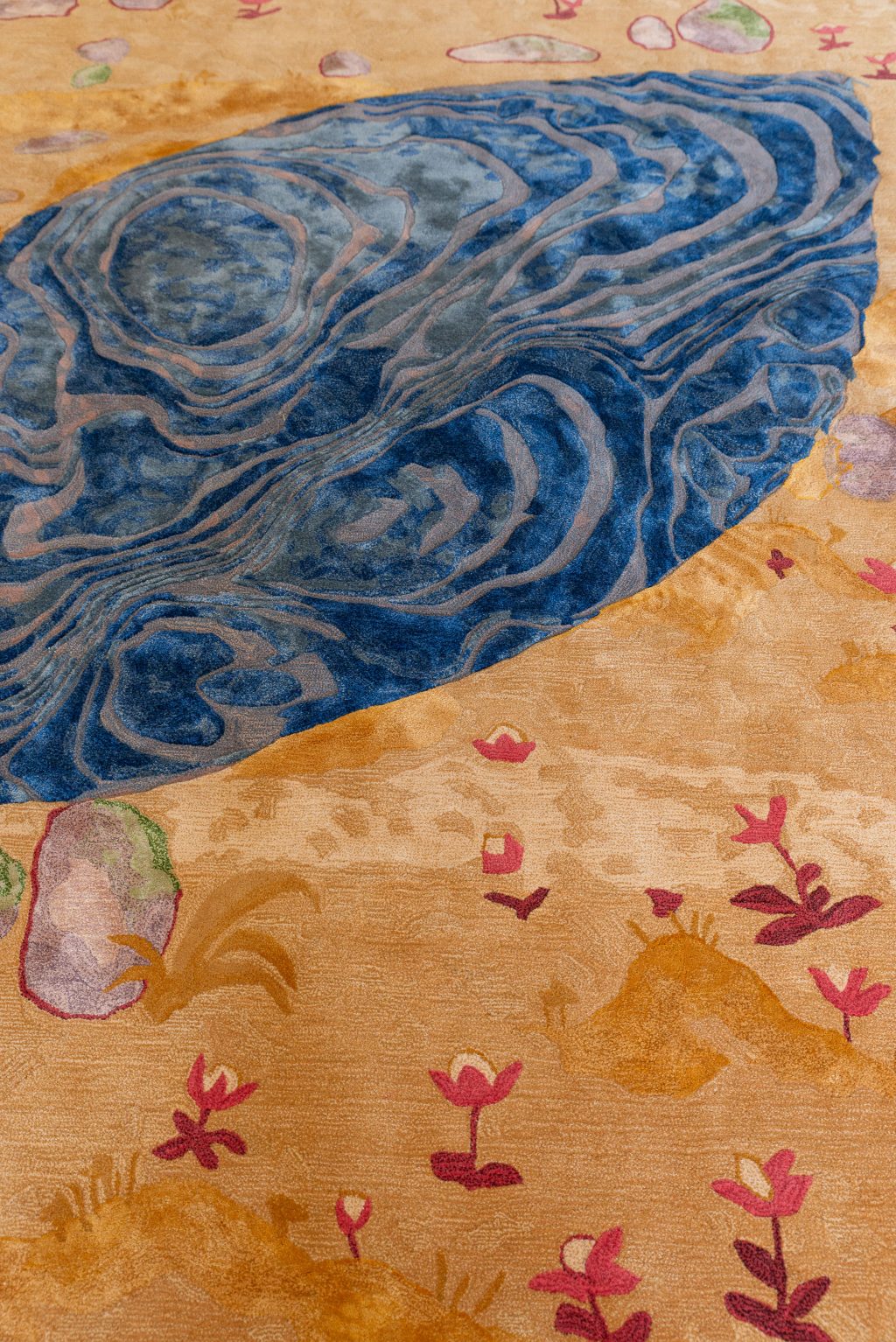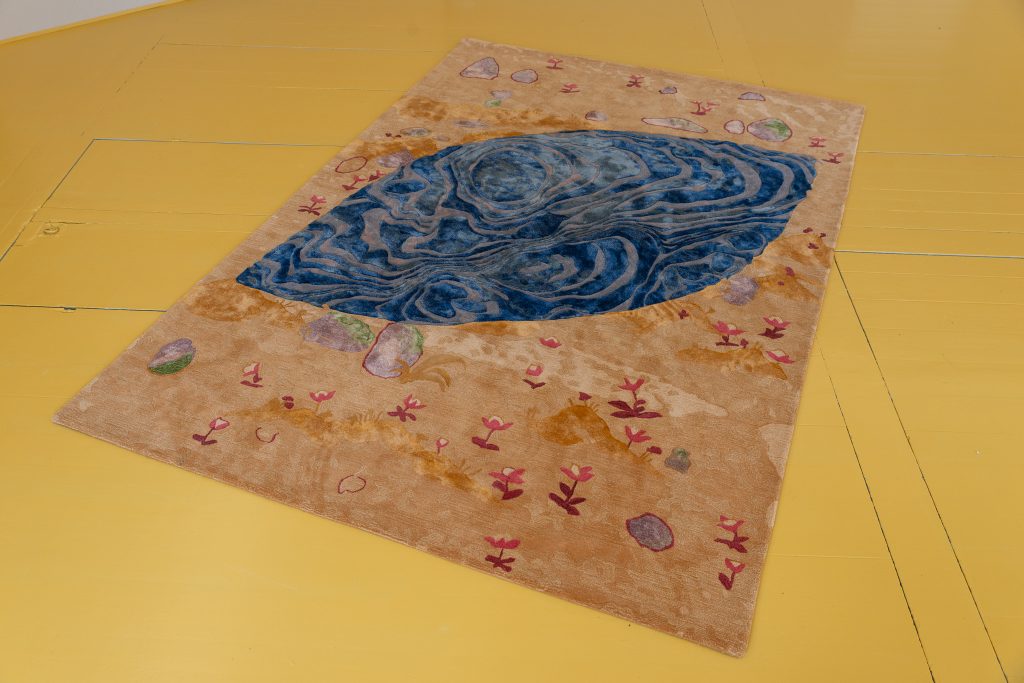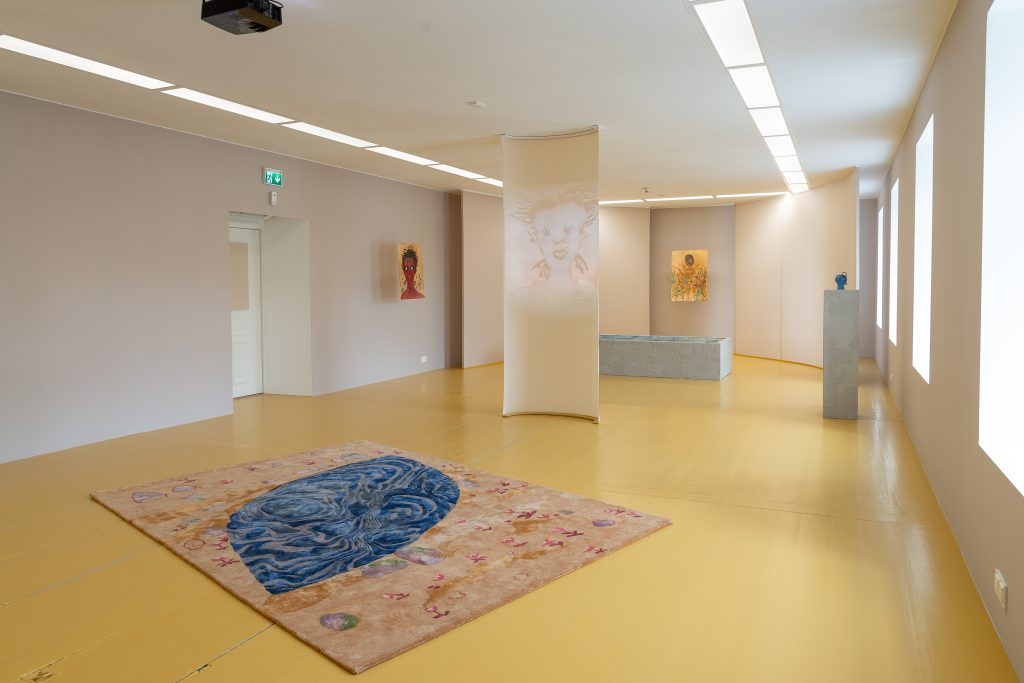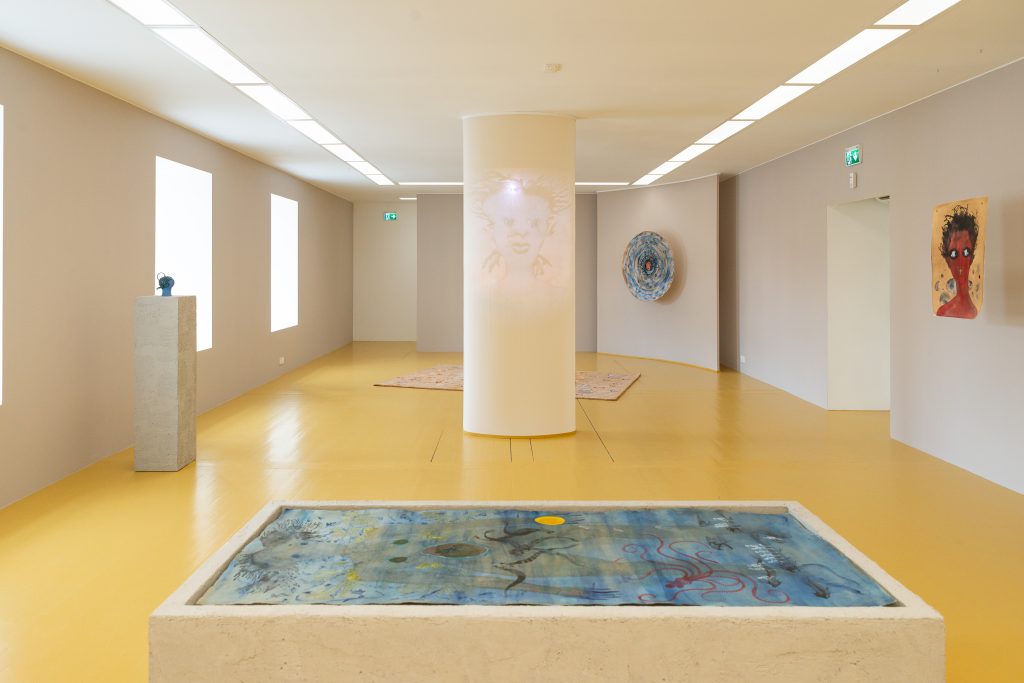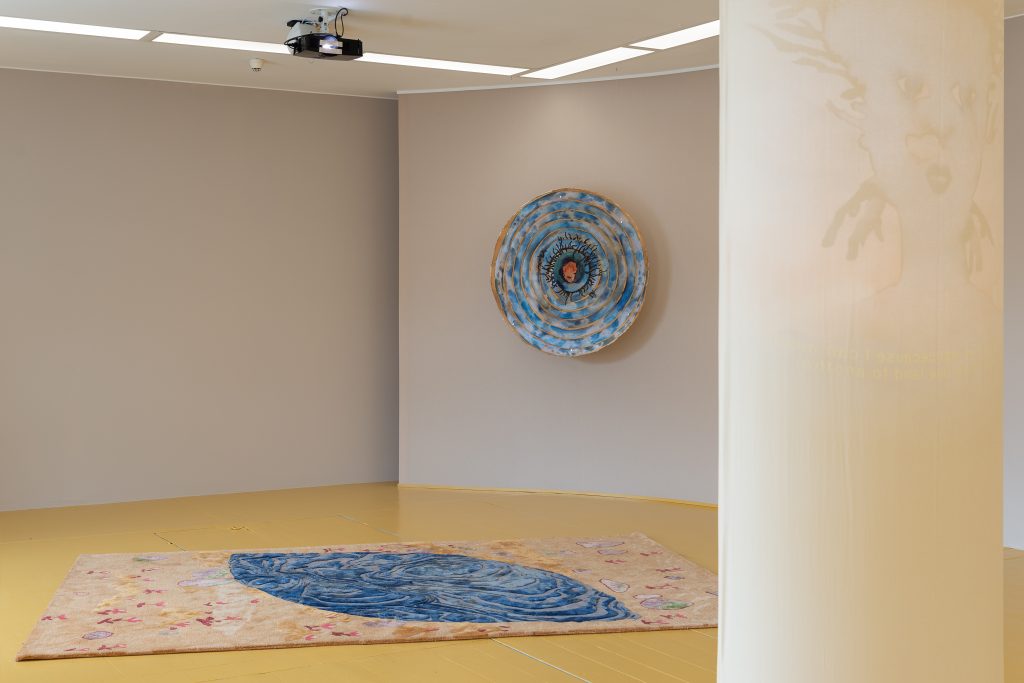Chioma Ebinama
This mud-formed life
February 23, 2024–May 5, 2024Hordaland Kunstsenter, Bergen
Through a recurrent use of anthropomorphised animals and plants, Chioma Ebinama’s practice reflects an interest in a future (and present) where humanity relinquishes its central position in the tapestry of life, embracing precolonial philosophies and their entanglement with concepts of animism and mythology which allows for, what the artist refers to as a “creation of a freeway removed from the white gaze”.
This mud-formed life incorporates a number of principal motifs within Ebinama’s practice, such as the spiral and the egg, the latter being a symbol of patience and hope which is reflected in the space itself as the gallery’s corners become muted through fabric sides, now oval in its form. The exhibition draws on the idea of mud as a nutritive birthplace, introducing an earth-toned underlay, where the landscape speaks to an envisioned future and encourages us to embrace complexity that goes beyond the categorisation of colonial structures.
References to tarot and astrology weave into the narrative, reflecting the artist’s pursuit of a faith liberated from the dogma of organized religion. This exploration is grounded in a profound belief that ancestors hold valuable insights for navigating uncertainty and precarity as Ebinama introduces a mode of subversion without denying a desire to lay hope in structures beyond ones own self.
At the heart of the exhibition stands an animated work projected onto a fabric cylinder, marking Ebinama’s inaugural investigation into this medium within an exhibition context. This piece serves as the nucleus of the space, the character in the animation being an avatar for the artist’s voice who here takes the form of a devotee to a water goddess, depicted in the painting oceanic feeling. Ebinama introduces the sea nymph as a symbol of difference, reinforcing their original presence in mythological narratives as a representation of feminine power. In ancient Greek society, nymphs were considered to be gods accessible to those classified as the lower or working class, while the gods which are widely represented in museums of today belonged to the elite within society. Ebinama’s recent works seek to highlight this class distinction and practice of segregation that persists through museum infrastructure.
A central methodology in constructing this exhibition has been the concept of play, and a rooting of the exhibition in a poetic landscape. Ebinama intentionally infuses playfulness into the artistic process, embracing it as a powerful tool for engagement and communication as well as an act of resistance, drawing upon Sylvia Wynter’s reflections on the power of poetry to operate as an “alternative process of making ourselves human”.
Chioma Ebinama (b. 1988) is a Nigerian-American artist living and working in Athens, working with a practice centred around works on paper, and often incorporating sound, textiles, sculpture, artist books and wearable art in her installations. Ebinama draws inspiration from the aesthetic of formalised religion, and incorporates a tapestry of influences spanning global folk art, West African cosmology and Eastern spiritual traditions. Her practice is also firmly rooted in an engagement with postmodern social theory, with the work of bell hooks, Sylvia Wynter, Sylvia Frederici, and Antonio Negri & Michael Hardt being integral influences in shaping this world view.
Recent solo exhibitions include The Eyes of the Beloved are Everywhere, at Maureen Paley: Morena di Luna, Hove, UK (2023); The Eleventh House, at The Breeder, Athens, Greece (2023); tipota, at Fortnight Institute, New York, USA (2022); A Spiral Shell, at Maureen Paley, London (2022); mud & butterflies, at Galeria Catinca Tabacaru, Bucharest, Romania (2022); and Lay All Your Love On Me, at Salon 94, New York, USA (2022). Group exhibitions include Body Full Of Stars, at Ceysson & Bénétière New York, NY, USA (2023); Cosmos, l’amante del vulcano, at Fondazione BTS Como Arte, Como, Italy (2023); Hollow Earth: Art, Caves & The Subterranean Imaginary, at Nottingham Contemporary, Nottingham, UK; travelling to The Glucksman, Cork, Ireland and RAMM, Exeter, UK (2022); and The Serpent’s Eye, at Musée d’art contemporain de la Haute-Vienne, Rochechouart, France.
The exhibition is curated by Scott Elliott.
